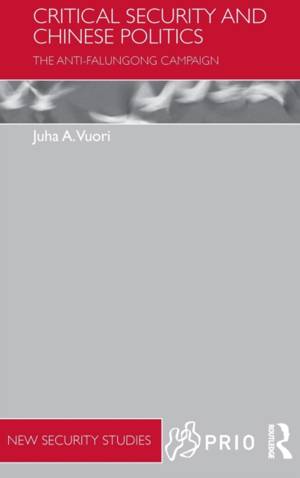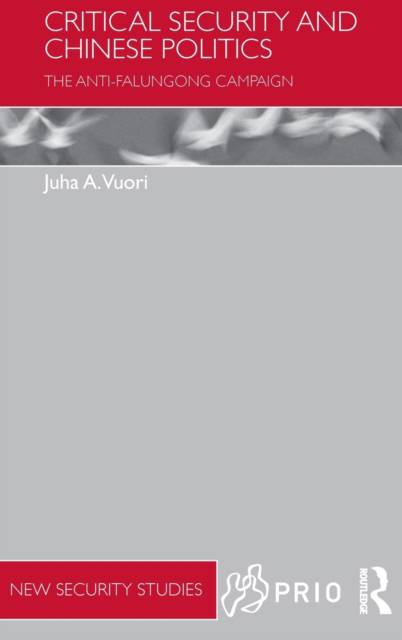
- Retrait gratuit dans votre magasin Club
- 7.000.000 titres dans notre catalogue
- Payer en toute sécurité
- Toujours un magasin près de chez vous
- Retrait gratuit dans votre magasin Club
- 7.000.000 titres dans notre catalogue
- Payer en toute sécurité
- Toujours un magasin près de chez vous
Description
This book examines how critical approaches to security developed in Europe can be used to investigate a Chinese security issue - the case of the Falungong.
The past few decades have produced a rich field of theoretical approaches to 'security' in Europe. In this book, the security-specific notions of securitization, the politics of insecurity, and emancipation are used as analytical approaches to investigate the anti-Falungong campaign in the People's Republic of China. This campaign, launched in 1999, was the largest security-related propaganda campaign since 1989 and was directed against a group of qigong-practitioners who were presented as a grave threat to society. The campaign had major impacts as new security legislation was established and human rights organizations reported severe mistreatment of practitioners.
This book approaches one empirical case with three approaches in order to transcend the tendency to pit one approach against another. It shows how they highlight different aspects in investigation, and how they can be combined to gain more comprehensive insights, and thereby invigorate renewed debate in the field. Furthermore, this is used as a vehicle to discuss more general philosophical issues of theory, development, and theory development and will assist students to comprehend the effects research framework selection has on a piece of research. Such discussions are necessary in order to apply the frameworks in investigations that go beyond the socio-political context they were originally developed in.
This book will be of interest to students of critical security studies, Chinese politics, research methods and IR in general.
Spécifications
Parties prenantes
- Auteur(s) :
- Editeur:
Contenu
- Nombre de pages :
- 210
- Langue:
- Anglais
- Collection :
Caractéristiques
- EAN:
- 9780415855532
- Date de parution :
- 22-08-14
- Format:
- Livre relié
- Format numérique:
- Genaaid
- Dimensions :
- 155 mm x 234 mm
- Poids :
- 430 g







